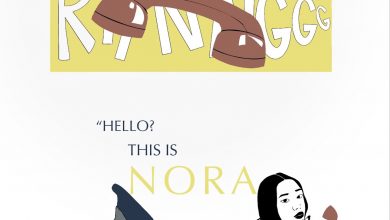Reconciling Sex, Reality and Romance in Summer Rom-Coms

As a moony adolescent, romantic comedies were the bread and butter of my over romanticized, daydream-filled existence. I lusted after the quintessential romantic plot: boy meets girl in unexpected encounter, boy and girl fall in love and are subjugated to absurd romantic travails and tribulations, and finally, boy and girl kiss and have spectacular wedding that results in the much desired heteronormative, suburban American marriage. Included in this idealistic package of romantic wonders are impossibly beautiful people and the characteristic rom-com heroine who looks like she just stepped out of a Cosmopolitan magazine cover (and probably did).
Now that I am in college, the false promises of romantic comedies are far behind me as I become more and more acquainted with the reality of modern romance. Yet, “Friends with Benefits” appealed to me because the trailer featured a promising heroine. She also reminded me of myself. The quirky Jamie wants the same things I foolishly still search for: a romance that befits a fairy tale and the spontaneity of rom-coms. More importantly, she wants the perfect prince charming. Brusquely dumped by an insensitive boyfriend who was late to the showing of her favorite movie “Pretty Woman,” Jamie relinquishes her hopes for love. She even shouts in rage at rom-com poster-girl Katherine Heigl for being “a liar” because the starlet seemingly lives in a world of romance that is denied to her.
Then Dylan, also recently dumped, comes along and conveniently presents an irresistible offer of commitment-free sex. Their worlds collide as they both enter the much warned against “friends with benefits” relationship and enjoy sex as Dylan suggests intercourse should be – “like playing tennis.”
Although the film itself employs Hollywood clichés while attempting to evade them, I laud the film as surprisingly feminist. The brash and foul-mouthed Jamie is a lovable, relatable, and refreshingly flawed heroine who even admits that she is “emotionally damaged” and “imperfect.” More importantly, screenwriters have finally created a female protagonist who enjoys and loves sex! I’ve been waiting for this moment for years! Jamie unabashedly reveals her sexual preferences to Dylan, and her love of sex is not necessarily tied to intimacy. This fact needs to finally be conveyed to male moviegoers, for women are often portrayed as the weepy saboteurs of “friends with benefits” relationships because they are “clingy” or “jealous.” Fortunately, Jamie is a far cry from Katherine Heigl in the “Ugly Truth,” who responds to Gerard Butler’s question, “do you flick the bean?” [masturbate] with revulsion; she enjoys sex as a purely physical act. What I love about Jamie is that she does not play prim and proper and she is an unapologetically sexual being. Additionally, I must add that unlike the media would lead us to believe, having a “friend with benefits” is possible for women and can be completely risk-free.
However, I was disappointed that the film does indeed end in a stereotypical rom-com flash mob finale. Spontaneity is glorified, and Jamie finally obtains her romanticized Prince Charming in the guise of Justin Timberlake. Thus, the film is paradoxical and leaves me with contradicting emotions. Should we still desire for our lives to recreate tawdry movie scripts? I still firmly believe that romantic comedies sabotage meaningful relationships. People are more complex than photogenic, two-dimensional characters, and love is (thankfully) more nuanced, challenging, and real than a collection of cheesy “take your breath away” moments. The false expectations of these films are inherently damaging. We should not attempt to have reality mirror the illusions of simplified Hollywood love.
Instead of waiting for a white horse to whisk us away, we should be looking for a companion who genuinely respects and loves us. Prince Charming comes in many forms, and besides, he is more interesting when he is a flawed, real human being! As a struggling hopeless romantic myself, I bid women to stop searching for the “happily-ever-afters” of chick-flicks and instead, to simply enjoy life, love, and sex.
Photo credit: MTV/PictureGroup




